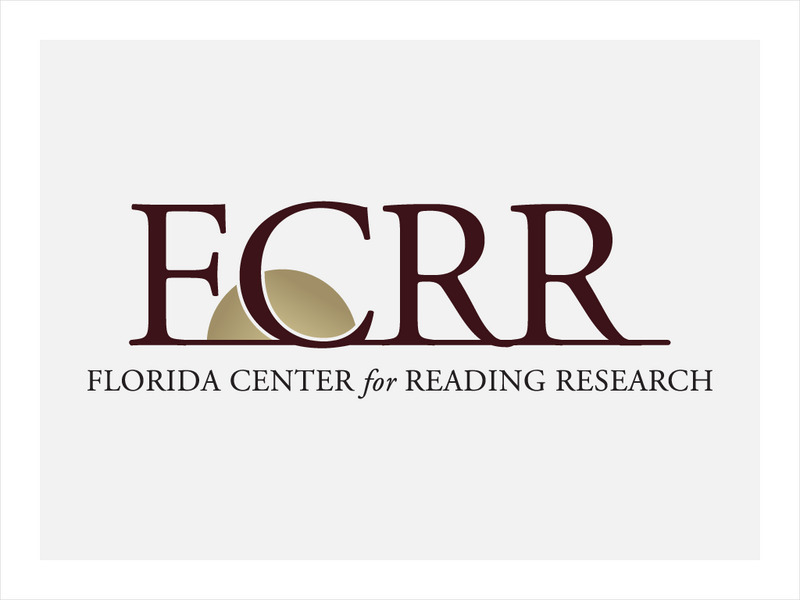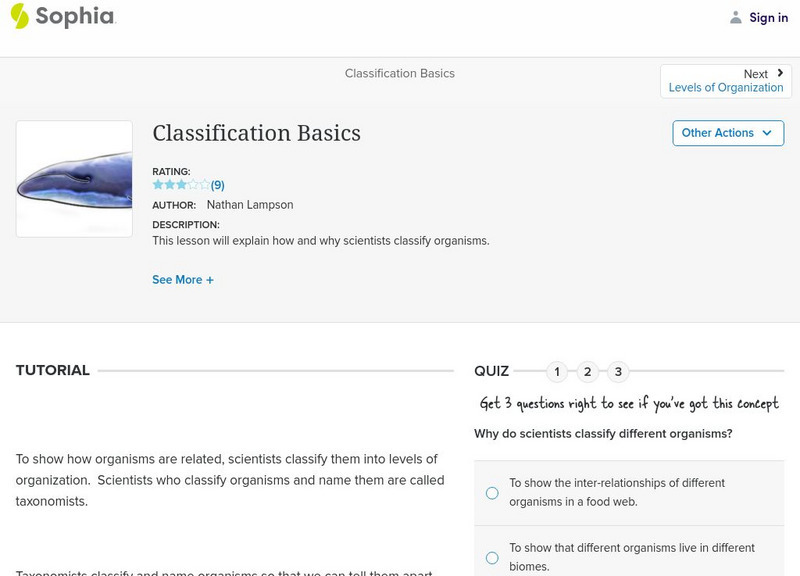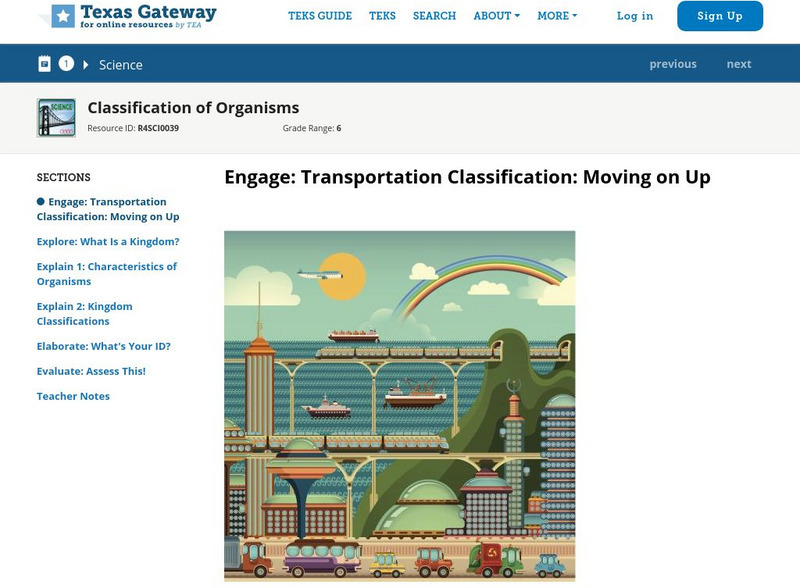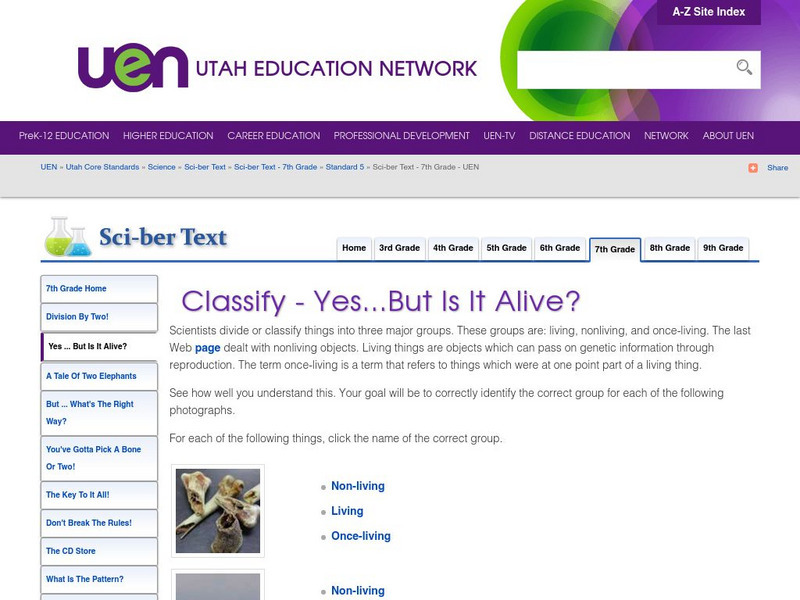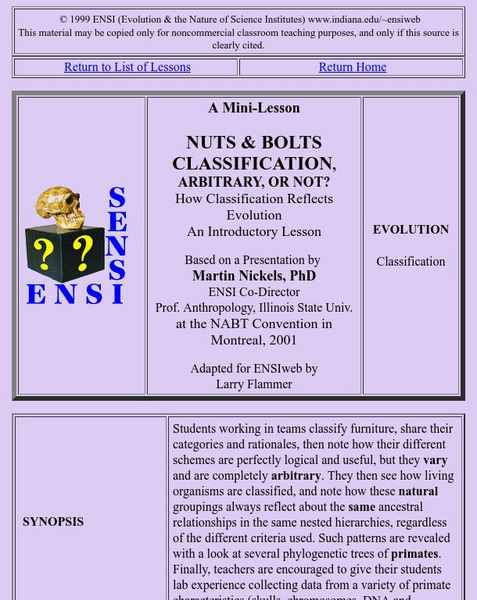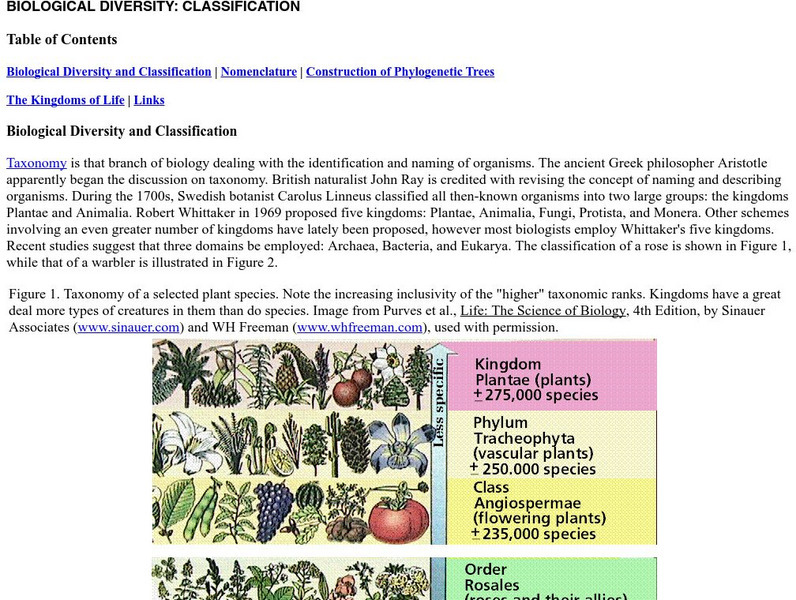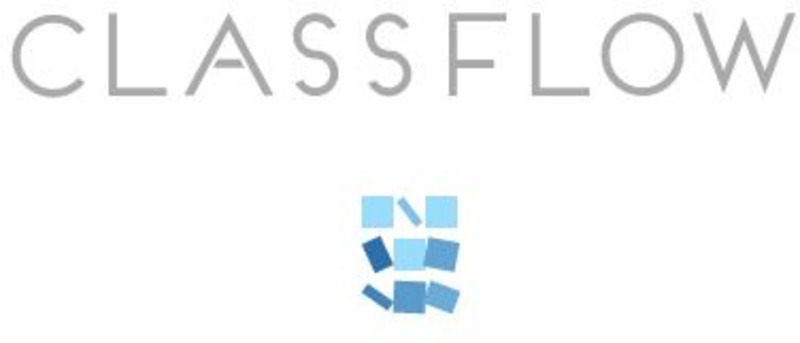Polk Brothers Foundation Center for Urban Education at DePaul University
De Paul University: Center for Urban Education: Classify and Summarize Information [Pdf]
This learning module contains a link to graphic organizers that will help students categorize content and comprehend short and extended texts. The graphic organizers are designed to be applied to reading nonfiction passages in science...
Polk Brothers Foundation Center for Urban Education at DePaul University
De Paul University: Center for Urban Education: I Can Locate and Classify Information [Pdf]
A blank T-Chart is provided for students to use as they sort facts into two categories. Students will classify science information with this aid.
Science Education Resource Center at Carleton College
Serc: Investigating Biological Classification: Organization of All Living Things
All living things can be identified by their placement in a biological classification table. Students will investigate the organization of all living things and learn how to classify through the process of classifying their own shoes....
Science Education Resource Center at Carleton College
Serc: Investigating Earth Materials: Collecting and Classifying
Activity investigates what Earth materials are made of. Students will go out and collect non-living earth materials that will fit in a small plastic bag then sort the material to discover ways of classifying what they have gathered....
Polk Brothers Foundation Center for Urban Education at DePaul University
De Paul University: Center for Urban Education: I Can Classify and Infer When I Read [Pdf]
This site contains links to two graphic organizers to guide and assess the understanding of nonfiction text in science and social studies.
Florida Center for Reading Research
Florida Center for Reading Research: Classifying Info [Pdf]
A lesson plan in which students read a text and complete a graphic organizer to find the main idea and supporting details. Materials are included.
Florida Center for Reading Research
Florida Center for Reading Research: Exp. Text Structure: Classic Classifying
A lesson plan in which students read a text and write main ideas and supporting details in boxes on a graphic organizer. Materials are included. [PDF]
Soft Schools
Soft Schools: Classification of Organisms Quiz
Take an interactive quiz over the classification of living things. After completing the quiz, check your score, and then revisit any incorrect question for further review.
Sophia Learning
Sophia: Classification Basics
This lesson will explain how and why scientists classify organisms.
Soft Schools
Soft Schools: Classification Quiz
Take this interactive, multiple-choice quiz over classification of organisms, then review your score and any missed questions at the end.
Polk Brothers Foundation Center for Urban Education at DePaul University
De Paul University: Center for Urban Education: I Can Classify and Summarize Information [Pdf]
A graphic organizer is provided to help students classify information in a nonfiction piece. Then students will write a summary of the information contained in the graphic organizer.
Alabama Learning Exchange
Alex: The Tree of Life
This is a lesson to help middle schoolers understand the phylogeny of organisms and how all organisms are linked in a certain way. By navigating an Internet site, students will learn how organisms are classified.
Texas Education Agency
Texas Gateway: Transportation Classification: Moving on Up
In this learning module, students will begin to undestand the how kingdoms are classified.
CK-12 Foundation
Ck 12: Episd: Animal Characteristics
[Free Registration/Login may be required to access all resource tools.] Students will be able to identify and classify organisms that are animals based on recognition of traits presented.
Indiana University
Indiana University Bloomington: Identifying 3 D Fossil Prints [Pdf]
In this lesson, students will identify three-dimensional (3-D) prints of common Indiana fossils to the kingdom, phylum, or class level. Students will observe and record the morphology of specimens and classify organisms based on their...
Utah Education Network
Uen: Classify Yes, but Is It Alive?
Do you know the traits something that is alive? Test your knowledge of the traits of life by identifying objects as alive, not living, or once alive.
Indiana University
Is Classification Arbitrary or Not?
Students transition from classifying furniture to an understanding of classification of living organisms in this thorough lesson plan site.
Estrella Mountain Community College
Estrella Mountain College: Classification
Discusses many aspects of information pertainingto organism classification. Provides links to other areas in biology as well.
Other
The Contemporary a Cappella Society: A Cappella Almanac
This website includes general information on a cappella music, as well has tips on how to get started in a cappella singing and how to arrange, perform, and record a cappella music. Read about world-wide a cappella events and check out...
Healthline Media
Medical News Today: What Are Stem Cells?
Discover what stem cells are and where they come from in this informative article from Medical News Today. Learn how they are classified and identified, new advances in stem cell research, and what the legal issues are.
ClassFlow
Class Flow: Thinking Maps the Tree Map
[Free Registration/Login Required] Teach your students to visualize the writing process using this graphic organizer as a tool.
CPALMS
Florida State University Cpalms: Florida Students: Diagramming Diversity I
Identify how living organisms are classified according to their evolutionary history. Recognize how a hierarchical classification scheme can be used to classify living organisms based on physical characteristics.
Alabama Learning Exchange
Alex: I Know What I Am, but What Are You?
During this lesson students will develop an understanding of how to classify living things and what creates the distinction among them. They will learn to classify living things by effects, environment, and activity.
![De Paul University: Center for Urban Education: Classify and Summarize Information [Pdf] Unit Plan De Paul University: Center for Urban Education: Classify and Summarize Information [Pdf] Unit Plan](https://content.lessonplanet.com/knovation/original/78057-7ba90e0b8b82fde8e26d306a4af31f79.jpg?1661787062)
![De Paul University: Center for Urban Education: I Can Locate and Classify Information [Pdf] Graphic De Paul University: Center for Urban Education: I Can Locate and Classify Information [Pdf] Graphic](https://static.lp.lexp.cloud/images/attachment_defaults/resource/large/FPO-knovation.png)
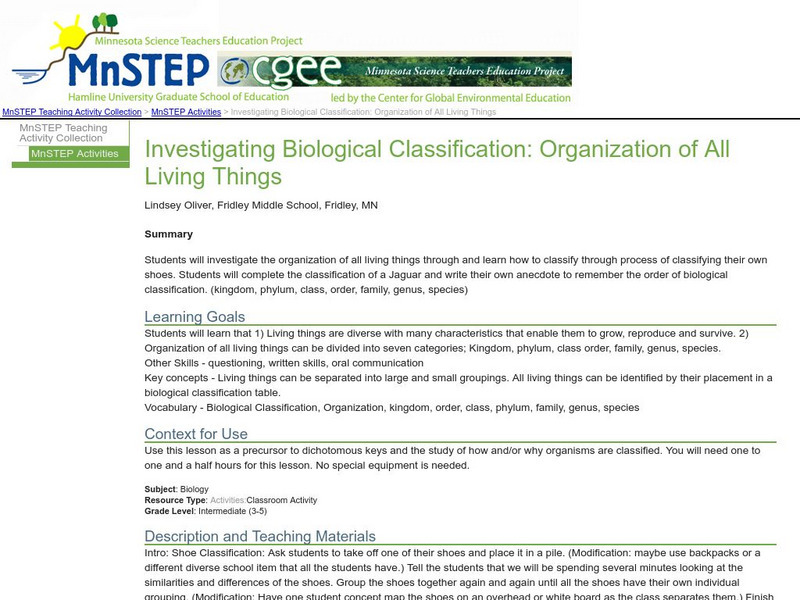

![De Paul University: Center for Urban Education: I Can Classify and Infer When I Read [Pdf] Unit Plan De Paul University: Center for Urban Education: I Can Classify and Infer When I Read [Pdf] Unit Plan](https://content.lessonplanet.com/knovation/original/119984-1e8c3bd778b0e773bd6dcdc545a348e7.jpg?1661787061)
![Florida Center for Reading Research: Classifying Info [Pdf] Lesson Plan Florida Center for Reading Research: Classifying Info [Pdf] Lesson Plan](https://content.lessonplanet.com/knovation/original/509096-8cdfbf6a2bb73b8aba0c98e84cd1f596.jpg?1661786980)
